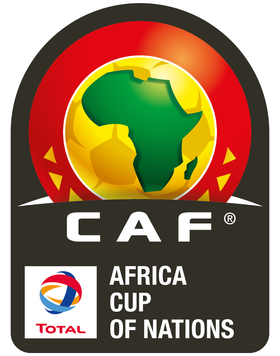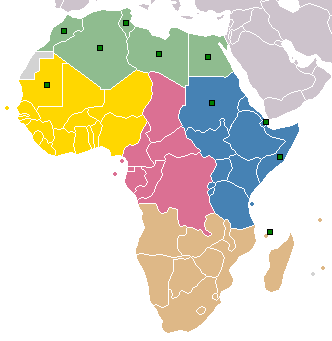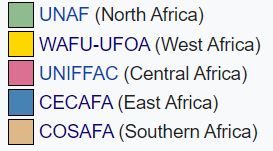Africa Cup of Nations

The Africa Cup of Nations (AFCON), officially the CAF Africa Cup of Nations (CAN) is the biggest international football competition in Africa. It is organised and run by the Confederation of African Football (CAF) and the first tournament was held in 1957.
The competition is held every 2 years and consists of 24 teams in the final tournament. Egypt is the most successful country in the AFCON with 7 trophies to its name.
Timeline of the AFCON
1950s and 1960s: Egypt laying its foundation for success
The first AFCON was held in Khartoum, Sudan, in February 1957. No qualifications were held for the first edition of the competition as the 4 founding nations of the tournament – Egypt, Ethiopia, South Africa and Sudan, decided to hold the tournament amongst themselves.
South Africa was banned from the tournament as they refused to field non-white players due to the apartheid back in the day. This meant Ethiopia would receive a bye into the final as Egypt faced off against hosts – Sudan.
Egypt won the first tournament by successfully overcoming the hosts and then Ethiopia in the final. 2 years later, Egypt hosted the 2nd edition of the CAN in Cairo with the same 3 teams (Egypt themselves, Sudan and Ethiopia). Egypt ended up winning the title once again by beating the Sudanese in the final.
The 3rd CAF included 9 teams in 1962 as the tournament was played in Ethiopia’s capital city – Addis Ababa. There was a qualification round for finalising the teams that would compete in the finals of the tournament. Ethiopia gained automatic qualification by virtue of being the host nation while Egypt secured an automatic berth for being the defending champions. Nigeria and Tunisia overcame the other teams to qualify but Egypt and Ethiopia managed to make it to the final. Egypt was stopped from completing a hattrick of titles by the hosts who made the most of home advantage to win their first CAN title.
1960s: Enter the Black Stars
1963 saw Ghana hosting the AFCON, which meant its first entry into the competition. The team won the cup in its first appearance by beating Sudan in the final. It was not just home advantage that led the Black Stars to victory and they proved that 2 years later, in 1965.
Tunisia played hosts to the 1965 CAN and Ghana ended up winning the title again to make it back-to-back wins and tie Egypt’s record of 2 AFCON titles.
In 1968, the qualifications took place between 22 teams and 8 teams were due to qualify for the final stages of the AFCON. The qualifying teams were split into 2 groups of 4 where they would play 1 match against each team in their group, with the top 2 teams advancing to the semifinals. DR Congo won the 1968 AFCON title by beating Ghana in the final to stop the Black Stars from winning 3 titles consecutively.
Ghana made its 4th consecutive AFCON final when they faced off against hosts, Sudan in 1970. Unfortunately for the Ghanaians, they fell short as they lost in the final once again.
1970s: Different Champions
1970 to 1980 saw the AFCON title being won by 6 different nations! Sudan, Congo, DR Congo, Morocco, Ghana and Nigeria were the winners of the competition during this period.
DR Congo won the 1974 AFCON title by beating Zambia in the final. DR Congo was the first sub-Saharan African nation to qualify for the FIFA World Cup that year.
Morocco won its first title in 1976 when Ethiopia played hosts while Ghana won a record 3rd CAN title in 1978, to become the first nation to win the continental cup 3 times.
1980s: Cameroon and Algeria’s Rise
Cameroon made the AFCON final on 3 consecutive occasions between 1980 and 1990. They won the tournament in 1984 and 1988 but lost to Egypt in the 1986 final.
Ghana won the 1982 AFCON title to make it 4 championships, 2 ahead of Egypt back then, when they beat hosts, Libya in the final.
Cameroon’s successful campaign in 1984 led them to their 1st ever AFCON title, which they followed up with a fantastic run to only be halted by the mighty Egyptians in 1986, who beat the Indomitable Lions on penalties. This was Egypt’s 3rd AFCON championship.
The Cameroonians made sure to return to the final once again in 1988 to win their 2nd championship in Casablanca, Morocco.
Algeria had a great run in the 1980s and this period saw the rise of another African footballing giant. The Algerians qualified for back-to-back FIFA World Cups in 1982 and 1986 and also made the final of the 1980 AFCON where they lost to hosts, Nigeria, in the final. This was Nigeria’s first-ever AFCON championship.
After 1980, Algeria reached the semifinals of every edition barring 1986, before winning the cup for the first time in 1990.
1990s: Ivory Coasts’s first AFCON win and South Africa’s end of apartheid
Nigeria lost to Algeria, in Algeria in the 1990 AFCON final after making 3 finals in the last 4 AFCON championships. The CAF increased the number of teams in the final tournament to 12 with them to be divided into 4 groups of 3 teams each, with the top 2 teams from each group, into the quarterfinals.
Ghana made the final once again in the 1992 AFCON tournament but lost to Cote d’Ivoire who ended up winning its first African championship as they beat the Black Stars on penalties.
The 1994 AFCON was held in Tunisia who failed to make it past the group stage. Nigeria won the cup by beating Zambia in the final to make it their 2nd title.
1996 saw the return of South Africa to football competition after the ban due to apartheid was raised given the end of it in the nation. South Africa hosted the AFCON in 1996, which saw an increase in the numbers of teams in the final round to 16. The South Africans made the most of home advantage as they beat Tunisia in the final to win their first AFCON title.
South Africa managed to make the final again in 1998 but lost to Egypt who won their 4th AFCON title to equal Ghana’s record as they beat Bafana Bafana in Burkina Faso.
2000s: Egypt’s Treble
The 2000 AFCON was hosted by Ghana and Nigeria. Cameroon ended up winning the cup to make it the nation’s 3rd AFCON title, as they beat Nigeria in the final.
Cameroon made the finals again in 2002 and this time, they came out on top by beating first-time finalists, Senegal on penalties.
Tunisia won its first AFCON championship in 2004 as they played hosts for the tournament, beating Morocco in the final.
Egypt hosted the 2006 edition of the AFCON and they did what was expected as they won a record 5th AFCON title. Egypt made it back-t0-back titles as they won the 2008 edition as well to make it 6AFCON championships after beating Cameroon in the final that was held in Ghana.
Egypt made it 3 titles in a row by winning the cup once again in 2010 when they beat Ghana in the final that was held in Angola. This took Egypt’s AFCON tally to 7 titles, which is a record that still stands.
The Pharaohs became the first African nation to win 3 consecutive titles and joined Mexico, Argentina, and Iran as the only nations to have won their respective continent cups thrice in succession.
Egypt went undefeated for 19 consecutive AFCON matches and a record, 9-match win streak.
2010s: Different Winners once again
2010 was the last time Egypt won the competition. Since then, the tournament has seen different winners in each edition.
The 2012 AFCON was hosted by Gabon and Equatorial Guinea. Zambia won its first and only AFCON title to date when they beat Ivory Coast in the final on penalties.
South Africa hosted the 2013 AFCON, which saw Nigeria lifting the cup by beating Burkina Faso who were first-time finalists, 1-0.
Equatorial Guinea hosted the 2015 AFCON and Cote d’Ivoire went on to win the title for the 2nd time in its history as The Elephants overcame stiff competition from finalists – Ghana, on penalties.
Gabon hosted the 2017 AFCON. Egypt made the final once again but lost to Cameroon who won their 5th AFCON title to now be just 2 behind the Egyptians.
Algeria won its 2nd ever AFCON title in 2019 when they beat Senegal 1-0 in the final held in Cairo, Egypt after Baghdad Bounedjah netted the winner in the 2nd minute itself.
Champions of AFCON

|
7 (1957, 1959, 1986, 1998, 2006, 2008, 2010) | |
|
3 (1980, 1994, 2013) | |
|
4 (1963, 1965, 1978, 1982) | |
|
2 (1992, 2015) | |
|
5 (1984, 1988, 2000, 2002, 2017) | |
|
2 (1990, 2019) | |
|
1 (2004) | |
|
1 (2012) | |
|
2 (1968, 1974) | |
|
1 (1962) | |
|
1 (1976) | |
|
1 (1970) | |
|
1 (1996) | |
|
1 (1972) |
Champions by Region


| Regional federation | Champions | Titles |
|---|---|---|
| UNAF (North Africa) | Egypt (7), Algeria (2), Morocco (1), Tunisia (1) | 11 |
| WAFU (West Africa) | Ghana (4), Nigeria (3), Ivory Coast (2) | 9 |
| UNIFFAC (Central Africa) | Cameroon (5), DR Congo (2), Congo (1) | 8 |
| CECAFA (East Africa) | Ethiopia (1), Sudan (1) | 2 |
| COSAFA (Southern Africa) | South Africa (1), Zambia (1) | 2 |
AFCON Betting
The Africa Cup of Nations was poised for 2021 however, given the COVID-19 pandemic, the tournament is now set to be held in January 2022 in Cameroon, which will be the 33rd edition of the AFCON/CAN.
Reasons to watch and bet on the AFCON
- Africa has the world’s best talents on display, currently: Mohammed Salah, Achraf Hakimi, Pierre-Emerick Aubameyang, Sadio Mane, Riyad Mahrez, and many more superstars will be in action for their national teams in Africa’s biggest continental competition.
- Africa’s young talent will be on display: Young and upcoming stars like Victor Osimhen, Wilfred Ndidi and Ismailia Sarr, will have an opportunity to showcase their talents to the rest of the world.
- African fans are one of the best in the world: Africa loves its football so you will have a chance to witness the most passionate fans from 24 of Africa’s best footballing nations singing along together through their love for football. The different backgrounds make for a thrilling atmosphere and experience.
- Growth in online sports betting in Africa and lack of knowledge of punters in the region: Many punters and bookies are less knowledgeable about AFCON than the English Premier League and other major European competitions. This presents an opportunity to use your African football knowledge and benefit through greater odds and placing smart bets.
- Learn more about the beautiful game and bet on one of the most exciting international football tournaments: Exploring new tournaments is a great way to not only build your understanding of football betting but also gives you the opportunity to make more money by leveraging the knowledge gained by watching other football leagues to bet smart and make sure to not repeat previously made mistakes.
Commons bets in AFCON
Here are some of the popular and common bets made by people who follow the CAF Africa Cup of Nations.
Match Result Betting
This is the most common bet in football, never mind, the AFCON. The reason for this is because it is the simplest bet to make and all you need to do is choose the winner or loser by predicting the outcome of the match.
There are 3 possible outcomes here – Team 1 wins, Team 2 wins or a Draw. Watching the qualifiers of the AFCON would help in understanding the strength and depth of teams going into the final tournament so keep an eye out on that.
Remember – games are not won on paper ever.
Under Goals Betting
In international tournaments, a common trend is to do everything possible to not concede a goal and keep a clean sheet. The case is not so different when it comes to the AFCON matches. AFCON 2019 had an average of just 1.96 goals per game whereas AFCON 2017 had 2.06 goals per game.
Given this stat, a bet of under 2.5 goals per game could be a value bet in the tournament.
Outright Betting
An outright bet basically means predicting the winner of the competition. The AFCON has seen multiple winners since its inception in 1957. The tournament has had 14 winners so far and the 2010s saw a different winner in each edition. Predicting a winner is extremely difficult, however, following the qualifiers and analysing the teams in the buildup to the final tournament can go a long way into making a sensible and calculated prediction for the team to win it all.
In case you do not wish to place a bet on the winner of the AFCON, you can also bet on the winners from each group in the main tournament or the teams that will advance to the knockout stages.
Golden Boot Winner Bet
A fascinating and interest bet would be predicting the top scorer of the AFCON. The top scorer of the competition wins the Golden Boot award and odds for this are generally good.
With world-class talents like Aubameyang, Mane, Mahrez and Salah on display, it may be a very challenging bet to place and get right. Matchups will play a significant role in this as well so do keep in mind which teams will be facing off.
A fun fact is that none of the golden boot winners in the previous 3 AFCONs was in the championship-winning teams. The likes of Victor Osimhen and Jordan Ayew could spring a surprise as the talisman upfront for their countries as well so do your research.
Africa Cup of Nations FAQs
When and where is the 2022 Africa Cup of Nations taking place?
The 2022 AFCON is scheduled for January 2022 in Cameroon. Official dates will be announced post the completion of the Qualifiers.
Which betting site is the best to bet on Africa Cup of Nations?
SportyBet is Africa’s #1 football betting and live streaming platform. It is available to users in Ghana, Kenya, Nigeria, Tanzania and Zambia so if you are from any of these regions then definitely do check out the website or the application – https://www.sportybet.com/
Which team has won the Africa Cup of Nations the most times?
Egypt is the most successful nation in the AFCON with 7 titles. They won the 1st 2 tournaments of the competition since its creation and also won 3 consecutive titles from 2006 to 2010.
How many teams qualify for the final AFCON tournament?
24 teams qualify for the AFCON from the qualifiers. They are then divided into 6 groups of 4. The top 2 from each group qualify for the knockout stages automatically. The remaining 4 spots are filled by the 4 best third-placed teams, which is determined by total points.
The tournament then moves into a single-leg knockout style competition.
